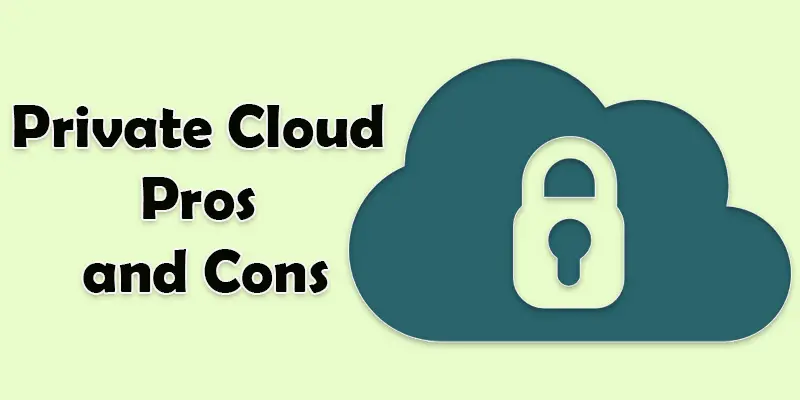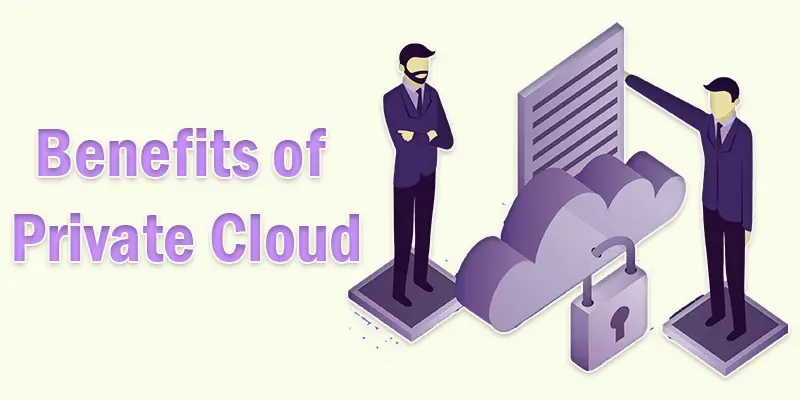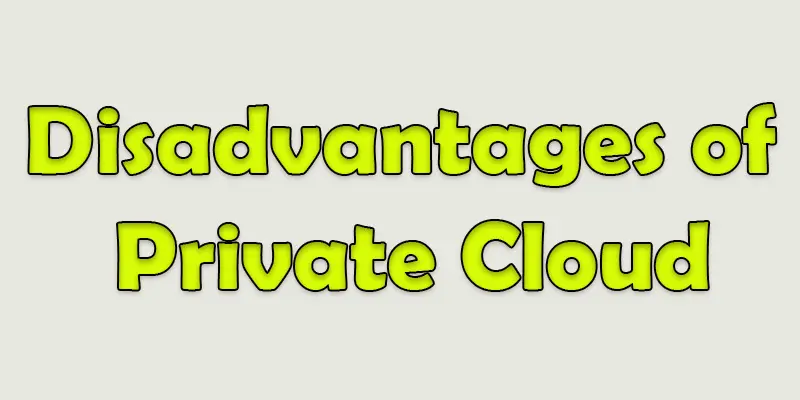Private Cloud Pros and Cons | A Complete Guide
Published: 25 Jun 2025
Private Cloud Pros and Cons for Businesses
Private cloud systems offer higher security and control, making them a strong choice for many businesses. But here’s the tricky part Do you really need a private cloud, or is it just adding more cost and work? Many teams feel stuck between wanting better data protection and dealing with the high cost of setup and maintenance. Whether you’re running a bank or just curious about cloud options, knowing the Pros and cons of private cloud deployment will help you make smarter choices.
| Benefits of Private Cloud for Data Security |
|---|
|
Private cloud benefits include better security, more control, and faster performance for your business. Enhanced Security |

Enhanced Security
Enhanced security in a private cloud means your data is stored in a secure, private environment, reducing the risk of unauthorized access. You have full control over who can access and manage your information.
Greater Control
Greater control in a private cloud means you have full authority over your cloud setup. You can customize settings, manage resources, and make decisions based on your business needs.
Customization
Customization in a private cloud allows you to tailor the system to fit your specific needs. You can adjust settings, features, and resources to match your business goals.
Better Performance
Better performance in a private cloud means faster speeds and more reliable service. Since the resources are dedicated to your business, there’s less chance of slowdowns or interruptions.
Data Privacy
Data privacy in a private cloud ensures that your sensitive information is kept safe and only accessible by authorized users. You have full control over how and where your data is stored.
Compliance Support
Compliance support in a private cloud helps your business meet legal and industry regulations. It ensures your data management practices align with required standards for security and privacy.
Dedicated Resources
Dedicated resources in a private cloud mean that the computing power, storage, and bandwidth are all reserved just for your business. This ensures better performance and avoids sharing resources with others.
Reliable Up-time
Reliable uptime in a private cloud means your system is available and running smoothly most of the time. With fewer users sharing the resources, there’s a lower risk of downtime or service interruptions.
Scalable Infrastructure
Scalable infrastructure in a private cloud allows you to easily add or reduce resources as your business grows. This means you can adjust your system to meet changing needs without major disruptions.
Improved Monitoring
Improved monitoring in a private cloud gives you the ability to track your system’s performance and security in real-time. You can quickly identify and fix issues before they affect your business operations.

| Private Cloud Disadvantages |
|---|
|
While the private cloud offers many benefits, it also comes with some disadvantages, like higher costs and maintenance responsibilities. High Cost |
High Cost
High cost in a private cloud means you need to invest in expensive hardware, software, and ongoing maintenance. This can be more expensive compared to using a public cloud service.
Maintenance Responsibility
Maintenance responsibility in a private cloud means your business is in charge of keeping everything up and running. This includes updates, security, and fixing any issues that come up.
Limited Scalability
Limited scalability in a private cloud means it can be harder to quickly grow or adjust resources. Expanding your system often requires more time, effort, and investment compared to a public cloud.
Complex Setup
A complex setup in a private cloud means it can take longer and require more expertise to get everything running. Unlike public clouds, you need to configure and manage the system yourself.
Requires a Skilled IT Team
Requires a skilled IT team means you need experts to manage and maintain your private cloud. Without the right knowledge, it can be challenging to ensure everything works smoothly and securely.
Hardware Investment
Hardware investment in a private cloud means you need to buy and maintain physical servers and other equipment. This can be expensive upfront, as opposed to using cloud services that don’t require this investment.
Longer Deployment Time
Longer deployment time in a private cloud means it takes more time to set up and get everything running. Unlike public clouds, which are ready to use quickly, a private cloud requires more planning and installation.
Less Flexibility
Less flexibility in a private cloud means it can be harder to quickly adapt or change your system. Once it’s set up, making major changes may require extra time and resources.
Resource Underutilization
Resource underutilization in a private cloud means that sometimes, your resources, like storage or computing power, might not be fully used. This can lead to wasted capacity and higher costs without maximizing efficiency.
Limited Support Options
Limited support options in a private cloud mean that you may not have the same level of customer service or help as you would with a public cloud. You may need to rely on your own IT team for troubleshooting and issues.

Conclusion About Advantages and Disadvantages of Private Cloud
Private cloud infrastructure pros and cons must be carefully considered before making any decisions. After reviewing the benefits, like enhanced security and control, and the challenges, such as higher costs and maintenance, I recommend exploring whether your company’s needs align with what a private cloud offers. If security and customization are top priorities, a private cloud could be a great fit. To better understand if this is the right choice for you, consider discussing your options with a cloud expert today.
FAQS
The disadvantages of a virtual private cloud include high costs and the need for skilled IT staff to manage it. It can also be more complex to set up than public clouds.
A benefit of using a private cloud is increased security and control over your data. You can customize it to meet your business needs.
Challenges of private cloud computing include high upfront costs, complex setup, and ongoing maintenance. It also requires skilled personnel to manage it properly.
The most common scenario for a private cloud is when businesses need high security and control over sensitive data, such as in healthcare or finance.
Whereas public clouds are shared by several organisations and are typically less secure but more affordable, private clouds are dedicated to a single organisation and provide greater control and protection.

- Be Respectful
- Stay Relevant
- Stay Positive
- True Feedback
- Encourage Discussion
- Avoid Spamming
- No Fake News
- Don't Copy-Paste
- No Personal Attacks



- Be Respectful
- Stay Relevant
- Stay Positive
- True Feedback
- Encourage Discussion
- Avoid Spamming
- No Fake News
- Don't Copy-Paste
- No Personal Attacks





